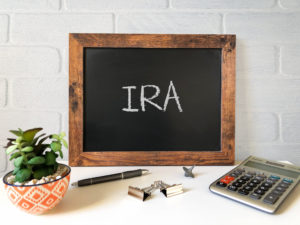
Do you own a second home or vacation property? Is it located in a state other than the state in which you live? Without the proper planning, dealing with the home or property upon your death can become a very expensive matter.
Ancillary Probate
Often times, a probate proceeding is required in order to deal with the disposition of real estate and other assets upon a person’s death. If the deceased person owned real estate in more than one state, a probate proceeding may be required in each state where such properties are located. Often times, a probate must be started in a person’s home state, (where he or she resided), and an additional probate proceeding, known as an ancillary probate, must be started in each of the other states where the person owned real estate. This process can result in the need to hire an attorney in each state where a probate proceeding is required, potentially resulting in significant and unexpected legal fees and expenses. Continue reading



 On December 20, 2019, President Trump signed into law the “Setting Every Community Up for Retirement Enhancement Act” (the SECURE Act). This new law changes how IRAs and certain other retirement benefits must be treated after death. These changes are significant, and they may affect your existing estate plan.
On December 20, 2019, President Trump signed into law the “Setting Every Community Up for Retirement Enhancement Act” (the SECURE Act). This new law changes how IRAs and certain other retirement benefits must be treated after death. These changes are significant, and they may affect your existing estate plan. At Kosa Law Office we frequently work with clients who wish to make loans to their children or other family members, often at a reduced interest rate. These loans sometimes involve a verbal arrangement, other times a land contract or a simple promissory note. But when making such loans, most clients are unaware of something called the Applicable Federal Rate (AFR).
At Kosa Law Office we frequently work with clients who wish to make loans to their children or other family members, often at a reduced interest rate. These loans sometimes involve a verbal arrangement, other times a land contract or a simple promissory note. But when making such loans, most clients are unaware of something called the Applicable Federal Rate (AFR).
 Land Contract
Land Contract An Individual Retirement Account (“IRA”) is a type of investment account that allows an individual to save money for retirement, with the earnings on the account potentially being tax deferred until they are later withdrawn at retirement. (Withdrawals from a Roth IRA can actually be tax free provided certain conditions are met).
An Individual Retirement Account (“IRA”) is a type of investment account that allows an individual to save money for retirement, with the earnings on the account potentially being tax deferred until they are later withdrawn at retirement. (Withdrawals from a Roth IRA can actually be tax free provided certain conditions are met). When someone dies, the disposition of their personal items, heirlooms and keepsakes are often the greatest source of contention among their surviving family members. However, during their lifetime many people fail to make arrangements to direct how those personal items should be distributed upon their death. Sometimes they make verbal assurances to certain family members during their lifetime, promising to leave them certain items upon death, but those promises are never put into writing. In order to avoid conflicts over the distribution of such items, and possibly avoid a lifetime of hard feelings between surviving relatives, it’s important to properly address these issues in your estate plan.
When someone dies, the disposition of their personal items, heirlooms and keepsakes are often the greatest source of contention among their surviving family members. However, during their lifetime many people fail to make arrangements to direct how those personal items should be distributed upon their death. Sometimes they make verbal assurances to certain family members during their lifetime, promising to leave them certain items upon death, but those promises are never put into writing. In order to avoid conflicts over the distribution of such items, and possibly avoid a lifetime of hard feelings between surviving relatives, it’s important to properly address these issues in your estate plan. As people get older it’s a natural desire to help their children financially, or perhaps make gifts to their grandchildren or other family members. But that generosity may later affect their eligibility for Medicaid benefits if they ever need long-term care.
As people get older it’s a natural desire to help their children financially, or perhaps make gifts to their grandchildren or other family members. But that generosity may later affect their eligibility for Medicaid benefits if they ever need long-term care. Wisconsin’s Rental Weatherization Program has been in effect since 1985. The program was the result of State legislation passed at that time which directed the Department of Safety and Professional Services to develop energy conservation standards for rental properties. If you are a landlord or own a residential rental property in Wisconsin, chances are that you’ve had to deal with the legal requirements of this program. However, due to recent legislation, the program will sunset on January 1, 2018.
Wisconsin’s Rental Weatherization Program has been in effect since 1985. The program was the result of State legislation passed at that time which directed the Department of Safety and Professional Services to develop energy conservation standards for rental properties. If you are a landlord or own a residential rental property in Wisconsin, chances are that you’ve had to deal with the legal requirements of this program. However, due to recent legislation, the program will sunset on January 1, 2018.